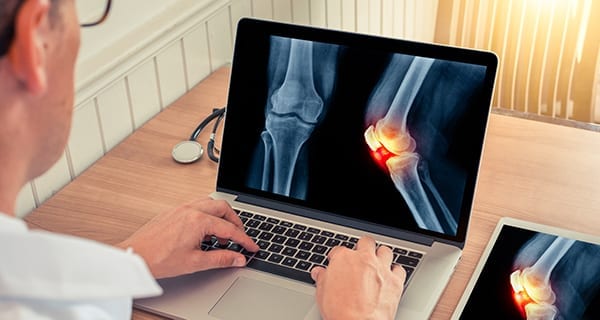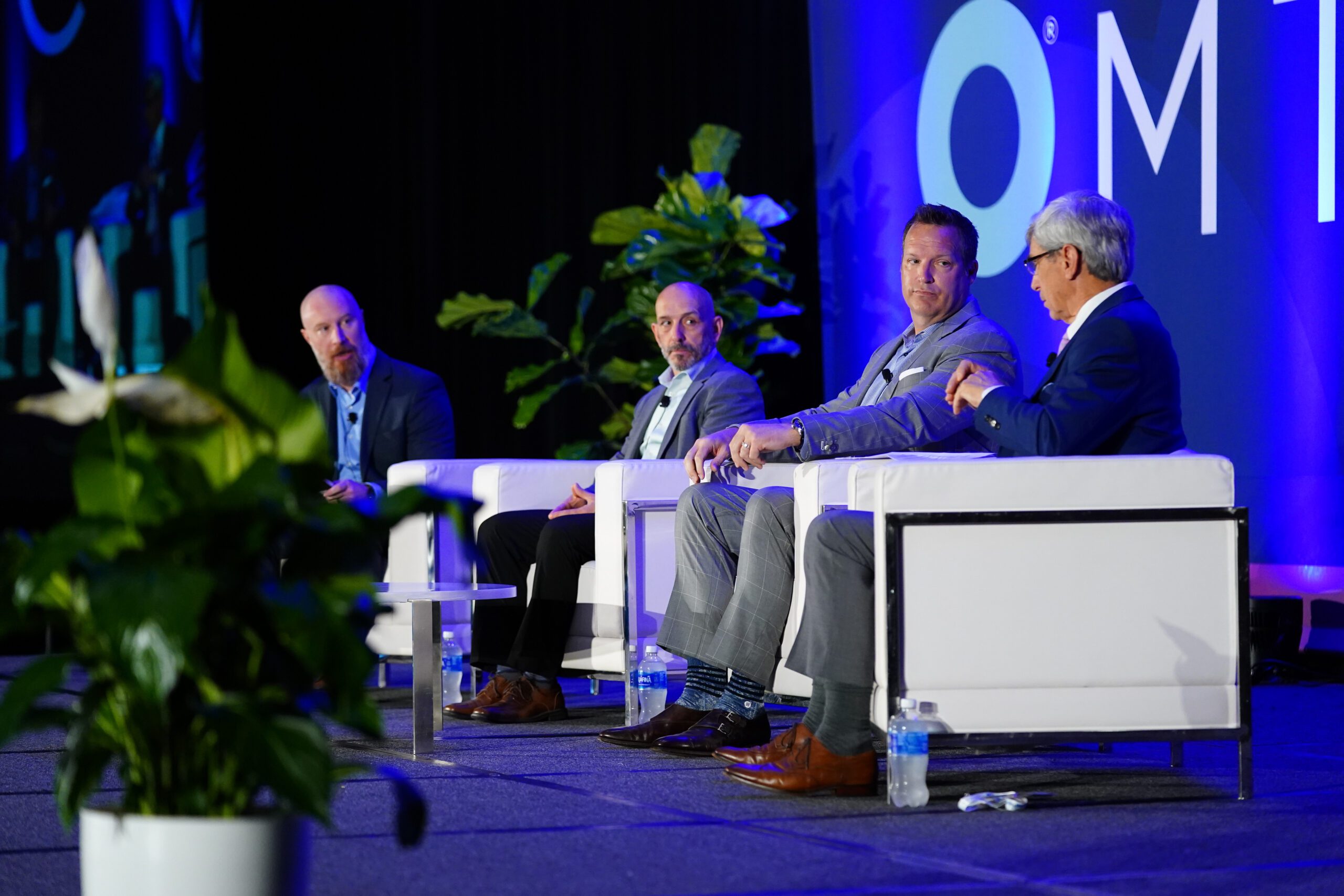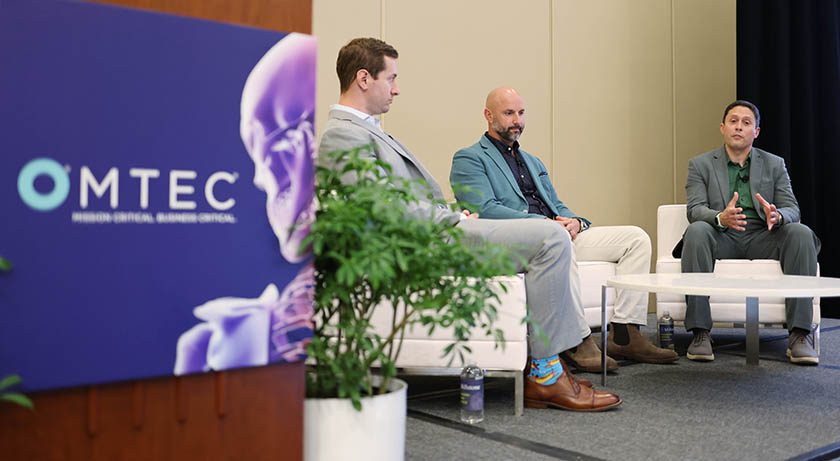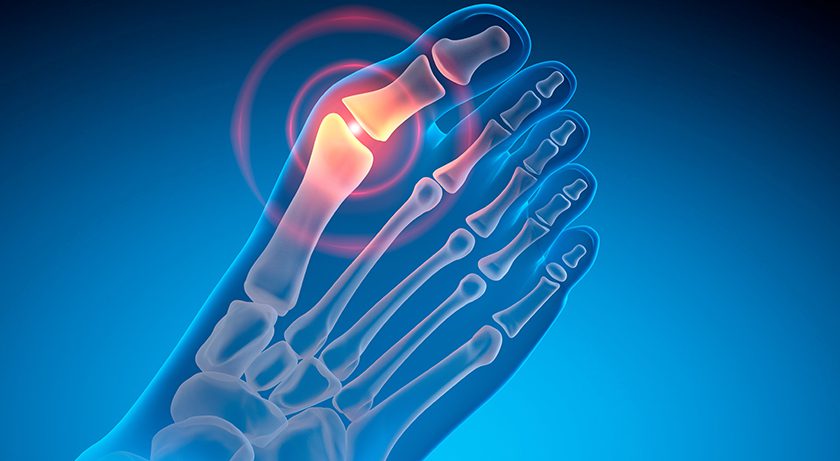

 Copy to clipboard
Copy to clipboard 
When Ira Kirschenbaum, M.D., first had the idea for the Journal of Orthopaedic Experience & Innovation, it was with the intention of addressing two main topics that seemed to be missing from industry publications. As its name implies, he hoped to provide articles that examine a surgeon’s experience and peer review papers on innovation.
It was 2009, and at that time, innovation and experience were discussed mainly at conferences or in labs, but not in journals in any kind of timely manner.
“There wasn’t a home to publish peer review papers on innovation or experience,” Dr. Kirschenbaum said. “We had to wait for 10 years for a 3,000 outcomes study, and in the meantime, the innovation has been out for 10 years and no one is able to express why they came up with it, what problem they’re solving or their one-year experience with it. So, we felt that there was a void.”
Dr. Kirschenbaum is a joint replacement surgeon and member of Ortho Founders, a network of orthopedic surgeons who have started companies to implement efficiencies in their day-to-day work. He presented his idea for the journal to the group, which agreed to name it the official journal of Ortho Founders.
“The force who really helped me the most, and I’m very thankful for him, is Vinod Dasa,” Dr. Kirschenbaum said. “He saw the value of the journal early, and has been a great comrade in arms on ideas to make the journal better. All of the Ortho Founders group have been very supportive of the work.”
Though the idea for the journal sparked in 2009, it launched in 2020 after the necessary pieces began to fall into place. Dr. Kirschenbaum has three rules of entrepreneurship: First, you need the idea; second, you need the ability to make it; and third, you need a distribution network. The idea was there, and it took time for the ability and the distribution network to push the peer-review-based journal forward. With the advent and maturity of a publishing platform called Scholastica and the sophistication of the LinkedIn platform for distribution, he was ready.
The Journal of Orthopaedic Experience & Innovation is an online, ongoing collection of articles that will be assembled into a single print publication at the end of each year. We asked Dr. Kirschenbaum, whose titles include Editor-in-Chief of the journal, Chairman of Orthopedics for BronxCare Health System and Founder of the patient referral platform Referral Pad, to share more information on what to expect from the new publication.
How would you describe the journal’s specific focus?
Dr. Kirschenbaum: We’re an online media source that peer reviews innovations on clinical, economic and all other aspects of orthopedics, including industry. It’s a fresh set of eyes that also brings back some old school features. We are very interested in experiences inside and outside the ivory towers. So, for example, if a very prestigious institution publishes their 10-year follow-up on joint replacement, we are also interested in the 10-year follow-up in an inner-city community hospital.
Even though it’s the same disease and the same implant, we think they’re different scenarios, different experiences and different results. We want to know, what’s your experience in Los Angeles? What’s your experience in Holland? What’s your experience in Chicago? And what’s your experience in the Medicaid hospital in Louisiana?
What are some of the more important topics the journal has covered thus far, and what is the impact of these topics on orthopedics today?
Dr. Kirschenbaum: One article is focused on an orthopedic surgeon who uses a robot for his joint replacement [procedures], which is still very debated in orthopedics. He uses a robot exclusively and gets 10 cases done a day, and is out early each day. He’s writing an article for us on why he chooses a robot, and we also want to know how he’s doing 10 joint replacements and getting out by a certain time that’s early in the day. That’s a story; that’s an experience. We’re pushing for details, and this is going to go through many reviews.
Recently we published a number of articles related to telehealth and its application in orthopedics. We have another one comparing post-surgical opioid use in an urban population and a non-urban population. Then, we have a blog section that talks about things like legal issues, with physician employment agreements or ways to market your practice during COVID. And, we have product reviews.
The journal has been a voice in the COVID-19 recovery. What important information are surgeons looking for during this time?
Dr. Kirschenbaum: What do I do? When do I do it? How do I do it? That’s it. That’s not only COVID, but I think in this busy world with so many options, even without COVID, sometimes you need the viewpoint of surgeons that are peer reviewed with good data, but it doesn’t have to be the most perfect study all the time.
Who do you expect will submit abstracts or articles?
Dr. Kirschenbaum: The initial group of people were those whom I asked from the Ortho Founders group, as well as others. The majority of the editorial board, about 90%, are orthopedic surgeons. The rest is a mix—one is a lawyer and bioethicist, one is an MBA healthcare consultant. I even have some residents on the editorial board because I want their perspective.
We don’t want to be the periodical that has other people report on people’s work. Those are important published media and online media, but we really want the voice to come from the surgeon, and that’s very important to use. For articles that we’ve turned away, we just graciously said this is neither about innovation, economics or clinical experiences.
One thing I want to do is what I call legacy articles. I would love to have quite senior orthopedic surgeons write articles about their experience in joint replacement, what they’ve seen. I’d like this journal to be a place where people could also feel that they’re rubbing elbows with people who are thought leaders.
What do you want industry to know about the journal?
Dr. Kirschenbaum: We will gladly look at any submission. It’s very easy to submit an article. We don’t hold you to 10,000 rules and barriers. You could submit in almost any type of format; we’ll restructure for you. We want you to format it how you want to tell the story. We’re trying to be friendly to the submitters, to the readers and to the reviewers. We’re an open access journal, which means that the journal is free. There’s no subscription, but authors pay a $300 article processing charge.
We’re also not afraid to publish innovation from industry, and that really separates us, I think, from any other journal. Great innovations come out of entrepreneurship, and entrepreneurship needs industry most of the time. It could be an individual orthopedic surgeon who starts his own company from an idea, or it could be someone who sells a patent to a big orthopedic device company, but that’s an innovation. We are the journal that peer reviews these innovations from industry.
When Ira Kirschenbaum, M.D., first had the idea for the Journal of Orthopaedic Experience & Innovation, it was with the intention of addressing two main topics that seemed to be missing from industry publications. As its name implies, he hoped to provide articles that examine a surgeon’s experience and peer review papers on innovation.
...
When Ira Kirschenbaum, M.D., first had the idea for the Journal of Orthopaedic Experience & Innovation, it was with the intention of addressing two main topics that seemed to be missing from industry publications. As its name implies, he hoped to provide articles that examine a surgeon’s experience and peer review papers on innovation.
It was 2009, and at that time, innovation and experience were discussed mainly at conferences or in labs, but not in journals in any kind of timely manner.
“There wasn’t a home to publish peer review papers on innovation or experience,” Dr. Kirschenbaum said. “We had to wait for 10 years for a 3,000 outcomes study, and in the meantime, the innovation has been out for 10 years and no one is able to express why they came up with it, what problem they’re solving or their one-year experience with it. So, we felt that there was a void.”
Dr. Kirschenbaum is a joint replacement surgeon and member of Ortho Founders, a network of orthopedic surgeons who have started companies to implement efficiencies in their day-to-day work. He presented his idea for the journal to the group, which agreed to name it the official journal of Ortho Founders.
“The force who really helped me the most, and I’m very thankful for him, is Vinod Dasa,” Dr. Kirschenbaum said. “He saw the value of the journal early, and has been a great comrade in arms on ideas to make the journal better. All of the Ortho Founders group have been very supportive of the work.”
Though the idea for the journal sparked in 2009, it launched in 2020 after the necessary pieces began to fall into place. Dr. Kirschenbaum has three rules of entrepreneurship: First, you need the idea; second, you need the ability to make it; and third, you need a distribution network. The idea was there, and it took time for the ability and the distribution network to push the peer-review-based journal forward. With the advent and maturity of a publishing platform called Scholastica and the sophistication of the LinkedIn platform for distribution, he was ready.
The Journal of Orthopaedic Experience & Innovation is an online, ongoing collection of articles that will be assembled into a single print publication at the end of each year. We asked Dr. Kirschenbaum, whose titles include Editor-in-Chief of the journal, Chairman of Orthopedics for BronxCare Health System and Founder of the patient referral platform Referral Pad, to share more information on what to expect from the new publication.
How would you describe the journal’s specific focus?
Dr. Kirschenbaum: We’re an online media source that peer reviews innovations on clinical, economic and all other aspects of orthopedics, including industry. It’s a fresh set of eyes that also brings back some old school features. We are very interested in experiences inside and outside the ivory towers. So, for example, if a very prestigious institution publishes their 10-year follow-up on joint replacement, we are also interested in the 10-year follow-up in an inner-city community hospital.
Even though it’s the same disease and the same implant, we think they’re different scenarios, different experiences and different results. We want to know, what’s your experience in Los Angeles? What’s your experience in Holland? What’s your experience in Chicago? And what’s your experience in the Medicaid hospital in Louisiana?
What are some of the more important topics the journal has covered thus far, and what is the impact of these topics on orthopedics today?
Dr. Kirschenbaum: One article is focused on an orthopedic surgeon who uses a robot for his joint replacement [procedures], which is still very debated in orthopedics. He uses a robot exclusively and gets 10 cases done a day, and is out early each day. He’s writing an article for us on why he chooses a robot, and we also want to know how he’s doing 10 joint replacements and getting out by a certain time that’s early in the day. That’s a story; that’s an experience. We’re pushing for details, and this is going to go through many reviews.
Recently we published a number of articles related to telehealth and its application in orthopedics. We have another one comparing post-surgical opioid use in an urban population and a non-urban population. Then, we have a blog section that talks about things like legal issues, with physician employment agreements or ways to market your practice during COVID. And, we have product reviews.
The journal has been a voice in the COVID-19 recovery. What important information are surgeons looking for during this time?
Dr. Kirschenbaum: What do I do? When do I do it? How do I do it? That’s it. That’s not only COVID, but I think in this busy world with so many options, even without COVID, sometimes you need the viewpoint of surgeons that are peer reviewed with good data, but it doesn’t have to be the most perfect study all the time.
Who do you expect will submit abstracts or articles?
Dr. Kirschenbaum: The initial group of people were those whom I asked from the Ortho Founders group, as well as others. The majority of the editorial board, about 90%, are orthopedic surgeons. The rest is a mix—one is a lawyer and bioethicist, one is an MBA healthcare consultant. I even have some residents on the editorial board because I want their perspective.
We don’t want to be the periodical that has other people report on people’s work. Those are important published media and online media, but we really want the voice to come from the surgeon, and that’s very important to use. For articles that we’ve turned away, we just graciously said this is neither about innovation, economics or clinical experiences.
One thing I want to do is what I call legacy articles. I would love to have quite senior orthopedic surgeons write articles about their experience in joint replacement, what they’ve seen. I’d like this journal to be a place where people could also feel that they’re rubbing elbows with people who are thought leaders.
What do you want industry to know about the journal?
Dr. Kirschenbaum: We will gladly look at any submission. It’s very easy to submit an article. We don’t hold you to 10,000 rules and barriers. You could submit in almost any type of format; we’ll restructure for you. We want you to format it how you want to tell the story. We’re trying to be friendly to the submitters, to the readers and to the reviewers. We’re an open access journal, which means that the journal is free. There’s no subscription, but authors pay a $300 article processing charge.
We’re also not afraid to publish innovation from industry, and that really separates us, I think, from any other journal. Great innovations come out of entrepreneurship, and entrepreneurship needs industry most of the time. It could be an individual orthopedic surgeon who starts his own company from an idea, or it could be someone who sells a patent to a big orthopedic device company, but that’s an innovation. We are the journal that peer reviews these innovations from industry.

You are out of free articles for this month
Subscribe as a Guest for $0 and unlock a total of 5 articles per month.
You are out of five articles for this month
Subscribe as an Executive Member for access to unlimited articles, THE ORTHOPAEDIC INDUSTRY ANNUAL REPORT and more.
HT
Heather Tunstall is an ORTHOWORLD Contributor and owner of Tunstall Content.







